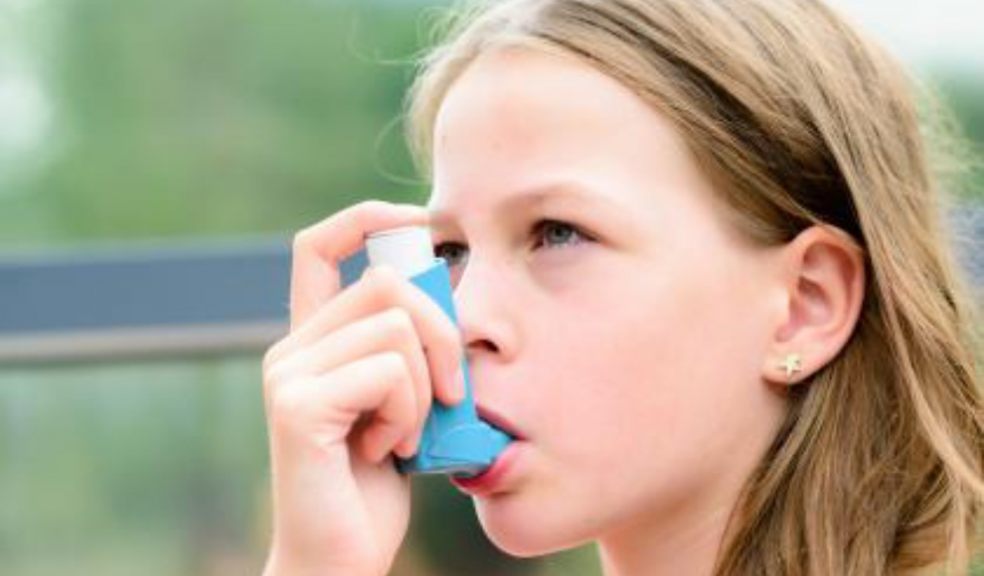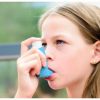
How to ease severe asthma at home: Read this!
As popularly known, asthma cannot be completely cured but can be reduced from severe to mild attacks by regular medications and home remedies. Keeping two inhalers with yourself at all times is extremely important. Check the date of the pump and keep replacing them once used up or expired. Asthma attacks can increase from mild to severe if not catered immediately. Prevention has always known to be better than cure so, to prevent yourself from having an attack, the following should be followed:
Know your sykptoms and triggers
Every individual having the health condition of asthma will have different triggers and symptoms to the attack. Hence you should always consult a doctor and have your action plan prepared according to your symptoms. We have listed some common triggers that one should always stay away from if suffering from asthma:
Triggers
- Allergies
80% of people with asthma suffer from things like grass, weed pollens, dust mites, animal dander in the air. Studies say that cockroach droppings lead to children having asthma.
- Food Allergies
Food allergies can also cause mild levels to life- threatening reactions. The most common food resulting in allergic symptoms:
- Eggs
- Peanuts
- Fish
- Wheat
- Shrimp and other shellfish
- Cows' Milk
- Salads
- Heartburn
Up to 89% of people with asthma also suffer from heartburn, especially at night, while lying down. (The doctors call it gastroesophageal reflux disease or GERD). There is a valve preventing the food from backing up into the esophagus or food pipe usually but, with GERD the valve does not function properly. This results in the stomach acids reflux into the esophagus. If the acids reach the throat or the airways it causes irritation and inflammation that could trigger an asthma attack.
- Infections
Cold, bronchitis, flu, sinus like respiratory infections can trigger an asthma attack. It can either be bacterial or viral and mostly the cause of asthma among children. Around 20% to 70 % of adults with asthma suffer from sinus.
Symptoms
As mentioned above, some people might not have all the above symptoms, while some may have different symptoms at different times. Some might have asthma for long periods without symptoms, with period worsening of their symptoms resulting in asthma attacks. Some might only have those attacks during exercise or while having viral infections.
Early Symptoms of Asthma
- Easy losing of breath
- Frequent Cough
- Feeling weak during exercise
- Coughing or wheezing after exercise
- Trouble in sleeping
- Being moody or upset easily
- Getting fatigued easily
Symptoms of having an Asthma Attack
- Continuous coughing
- Rapid Breathing
- Severing wheezing during breathing
- Chest pain
- Feeling anxious or panicking
- Paling of the face and sweating heavily
- Blue lips and fingernails.
Now that we know the triggers and symptoms of the attacks learning how to treat them is equally crucial.
Immediate Steps
- Sit up straight and try to calm yourself. Do not lie down; it worsens the attack.
- Take one puff from your inhaler with a gap of 30 to 60 seconds and with a maximum number of puffs.
- If the situation does not improve after 10 puffs, call for an emergency medical attack.
- If the emergency medical help does not arrive in 15 minutes take puffs from the reliever as mentioned in step 2.
Remedies for an Asthma Attack
Sitting up straight and remaining calm is essential. The former helps to open the airways and makes it easier for the air to pass.
- Pursed lip Breathing
It means breathing in through the nose and breathing out through the lips with the exhale taking twice a long time to inhale.
- Belly Breathing
It is about breathing in through the nose with the hands on the stomach and breathing out while keeping the shoulder and the neck relaxed. The exhale should last two to three times longer than the inhale.
- Home Remedies
Even though home remedies haven’t been proven to reduce the attack, the practices have been helpful to individuals. Some such home remedies are,
Caffeine
Caffeine is an old drug, and research says that it improves the functioning of the lungs since it contains theophylline, which is a bronchodilator drug that's used to open up the airways. So coffee or tea might be helpful to reduce the frequency of the attacks however, there isn't any proven research on it.
Some other helpful home remedies to diminish the symptoms of asthma are mentioned here. Do not let the condition get severe. Treat it while it's mild with no side effect medications for better results.




















